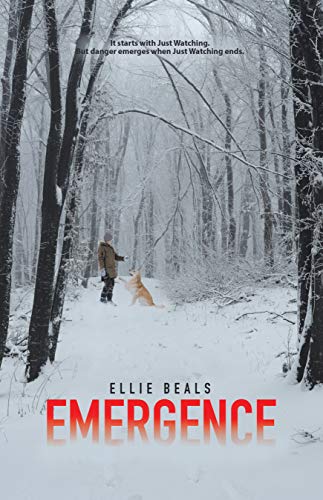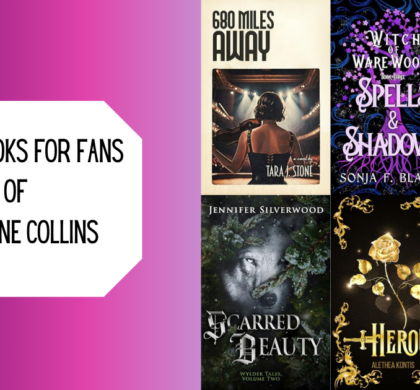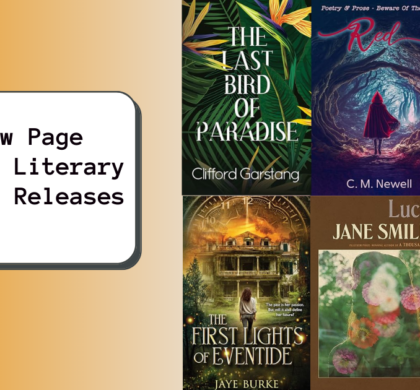Interview with Ellie Beals, Author of Emergence
11 May 2021
What can you tell us about your new release, Emergence?
Emergence is a novel of psychological suspense, that many readers report kept them reading long into the night. Great – that’s what these kinds of books are supposed to do. But you may encounter some genre-bending surprises along the way, beyond those woven into the plot. Like women strong enough to take care of themselves without angsting about their pasts, like dogs that are essential players in the story and who behave the way real dogs do, like intricate and unusual relationships, and like moral quandaries that may keep you mulling for quite a while and wanting someone to discuss them with. That’s what I worked to craft for my readers, and what many of them report they’ve experienced: a compelling read that transports them into the wilds of West Quebec, and a lasting and powerful memory of Lac Rouge and the wildchild Xavier they met there, in this dark, but occasionally sun-speckled drama.
What or who inspired you to become an author?
I spent my professional life as a writer, since as a consultant who entered the field as a plain language specialist, writing was the thread that consistently wove through the varied fields (corrections, social justice, dispute resolution, and many more) in which I conducted projects. Thus, I knew that in some way, I was fulfilling my lifetime ambition to be a writer. But it was from my perspective, a VERY small way, since when I first formed that ambition as a child enthralled with reading, I was thinking about writing fiction. About being An Author. When I retired from consulting it was finally time to have that showdown with myself to see if I could move from being a writer to becoming an author.
What’s on your top 5 list for the best books you’ve ever read?
Tough question. The list would probably be different on any day you asked. But for today, here you go:
- Lord of the Flies
- Catcher in the Rye
- Salem’s Lot
- To Kill a Mockingbird
- Deliverance
When I look at my list, I note that with the exception of Deliverance, children or adolescents are the main characters in each of these great books. Pretty strange, since I never had or wanted to have children. But I always recognized the great skill required to create a convincing child character. Given these influences, it is not surprising that Xavier, the wildchild of Lac Rouge and the principal protagonist of Emergence, is an adolescent. Lord of the Flies and Deliverance were also important influences in shaping the wilderness dramas at the heart of Emergence.
Say you’re the host of a literary talk show. Who would be your first guest? What would you want to ask?
My first guest would be James Lee Burke, author of countless novels set in Louisiana, featuring Dave Robicheaux, and a more limited series about Hacklebury Holland, set in Texas. The Robicheaux series is my favorite, because of the extraordinary descriptions of Louisiana — a place I’ve never visited, but feel that I know intimately through Burke.
Burke is in his 80s now, but in his most recent book, A Private Cathedral, he displays, perhaps more than ever, the qualities that have fascinated me since I first “met“ him. I am awed that a writer can project such maleness in his writing – I can smell the testosterone wafting off the page. That carries with it descriptions of what happens to people prone to violence – the way they are seized by anger like a palpable force that transports them to a physical place to which I’ve never been, and to which I hope to never go. Having said that, I have never felt that Burke celebrates this kind of violence, as film-makers like Quentin Tarintino or Sam Peckinpah before him, have. He seems to view it as an elemental force – one that Robicheaux valiantly attempts but sometimes fails to fight successfully.
But all of this is simply my speculation on Burke’s perspective on the violence he presents. I’d love to ask him about it. Does he or did he experience this drive to violence? How has he coped with it? How does he reconcile that with the extraordinarily empathetic perspective that also permeates all of his books?
What’s your favorite thing about writing?
I am and have always been time-sensitive. I take my watch off only to shower. But I hardly need it – my internal clock is uncanny. Regardless of what time I set an alarm for, I awaken five minutes before that. My ability to know what time it is without looking at my watch is legendary. There are many obvious benefits to this, but also the significant downside of constantly having Time as a looming presence in my life. The thing I love most about writing is that it makes time go away, or at the very least, slooowww waaay doowwwn into a more elastic and forgiving medium than I’ve cast it to be in every other aspect of my life. When I am writing (fiction – not a consulting report!) I am fully immersed, lost to everything but that evolving interior world. I love this intense and very narrow focus, and the way it eliminates the many nagging little voices constantly threading their way through everyday consciousness.
What is a typical day like for you?
Since I stopped consulting, and Covid shut down my coaching (for dog-obedience competitors) practice, I no longer have a settled routine. But even though there is no set sequence of events, almost every day includes, in addition to the standard eating, sleeping, relating to family and friends, and chilling, these activities: writing (marketing-related, correspondence, bloggery, or fiction); exercise (hiking, skiing, kayaking, swimming at the cabin, or cardio-training and weight-lifting in Ottawa); dog care (training, health care, feeding, grooming).
What scene from Emergence was your favorite to write?
Let’s make this plural – “scenes”, rather than scene. There are a number of violent, action scenes in Emergence. I was both excited and apprehensive as I approached these, because I had never written anything like that before ( murder and mayhem being either not-present or extremely muted in the consulting world). So I didn’t know if I’d be up to it. I found writing these scenes to be completely engrossing. My background in dog-training, where high-calibre competitors need to map out every move in order to choreograph a performance was very helpful, and the whole process of crafting these scenes was great fun. And they worked. Sometimes when you write – you know you nailed it. I felt that about these scenes and readers have confirmed it.
Do you have a motto, quote, or philosophy you live by?
My guiding light these days, is to never revert to the motto that drove me throughout the whole of my professional career: “Shit fast – the bear is coming.” That sense of hovering immediacy, of having to get it done NOW was tremendously useful in consulting, and allowed me in a thirty-year career, to never once miss a deadline. It developed (indeed, super-sized) my natural drive. But it is not an approach compatible with chilling and being in the moment. At this point in my life, those qualities are the ones I find more rewarding than the constant driving and striving. The wilds of West Quebec, which I know and love, and is the locale of Emergence, have helped me quell the more drivey (a term we use a lot in the dog-world, but which applies to humans also), ambitious parts of who I am.
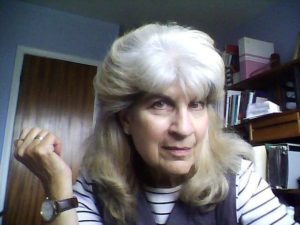
Ellie Beals is the author of the new book Emergence
Connect with Ellie Beals
Author Site
Facebook
Buy The Book
Sign up for our email and we’ll send you the best new books in your favorite genres weekly.
Related
grant
Recommended Posts
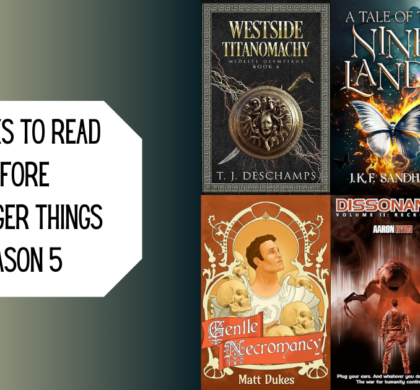
6 Books to Read Before Stranger Things Season 5
26 Apr 2024 - Books to Read if You Like..., eBook, Fantasy & Science Fiction, News
